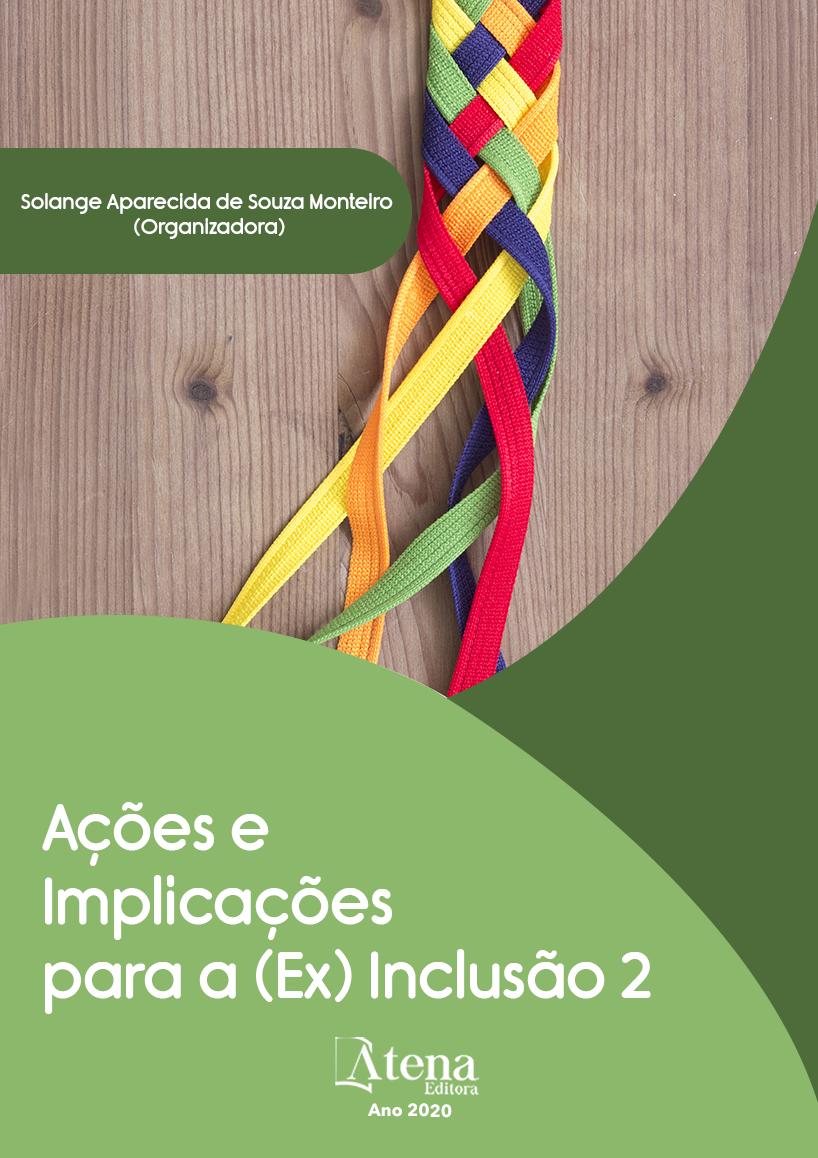
ATENDIMENTO EDUCACIONAL ESPECIALIZADO NO ENSINO MÉDIO E SUPERIOR: VIVENCIANDO DESAFIOS E POSSIBILIDADES NA REDE DE ENSINO BÁSICO, TÉCNICO E TECNOLÓGICO
O objeto de pesquisa da presente proposta é a nossa experiência como docentes de Atendimento Educacional Especializado, AEE, com estudantes do ensino médio e superior. Abordamos questões relativas ao público alvo da educação especial, políticas de inclusão, conceitos, reflexões e ações necessárias para efetivar a inclusão educacional. Traçamos o percurso histórico do AEE, compartilhando ações e reflexões sobre essas ações no AEE. Temos como referencial os estudos de MANTOAN (2015); BRASIL (2008; 2015). Adotamos como percurso teórico-metodológico a Pesquisa Narrativa a partir do contar de experiências (CLANDININ; CONNELLY, 2000, 2011, 2015; CONNELLY; CLANDININ, 2004). Para analisar a experiência, partimos da composição de sentidos (ELY; VINZ; DOWNING; ANZUL, 2001). Os resultados do estudo apontam muitos desafios a serem vencidos: necessidade de elaboração de um documento normativo que regulamente o AEE no ensino médio e superior; adoção de uma perspectiva de inclusão que não seja imposta, mas que considere os anseios do estudante e suas escolhas sobre recursos de acessibilidade; necessidade de vencer a resistência de docentes que ainda se prendem às metodologias e práticas avaliativas tradicionais, investimento em formação docente. No que diz respeito às possibilidades, compartilhamos ações que podem apoiar os estudantes no desenvolvimento de suas potencialidades; ajudam a eliminar ou minimizar possíveis barreiras que dificultam o processo de construção de conhecimentos.
ATENDIMENTO EDUCACIONAL ESPECIALIZADO NO ENSINO MÉDIO E SUPERIOR: VIVENCIANDO DESAFIOS E POSSIBILIDADES NA REDE DE ENSINO BÁSICO, TÉCNICO E TECNOLÓGICO
-
DOI: 10.22533/at.ed.1712004038
-
Palavras-chave: Atendimento Educacional Especializado. Inclusão. Acessibilidade.
-
Keywords: Specialized Educational Attendance. Inclusion. Accessibility.
-
Abstract:
The research object of this proposal is our experience as teachers of Specialized Educational Attendance, SEA, with high school and college students. We address issues related to the target audience of special education, inclusion policies, concepts, reflections and actions necessary to effect educational inclusion. We trace the historical path of SEA, sharing actions and reflections on these actions in SEA. We have as reference the studies by MANTOAN (2015); BRAZIL (2008; 2015). We adopted as a theoretical-methodological course the Narrative Inquiry from the telling of experiences (CLANDININ; CONNELLY, 2000, 2011, 2015; CONNELLY; CLANDININ, 2004). To analyze the experience, we start from the meaning composition (ELY; VINZ; DOWNING; ANZUL, 2001). The results of the study point to many challenges to be overcome: the need to elaborate a normative document that regulates the SEA in secondary and higher education; adoption of an inclusion perspective that is not enforced but that considers the student's wishes and choices about accessibility features; need to overcome the resistance of teachers who still cling to traditional methodologies and evaluation practices, investment in teachers education. As far as possibilities are concerned, we share actions that can support students in developing their potentials; help eliminate or minimize potential barriers that hinder the knowledge-building process.
-
Número de páginas: 10
- Luana Tillmann
- Judith Mara de Souza Almeida


